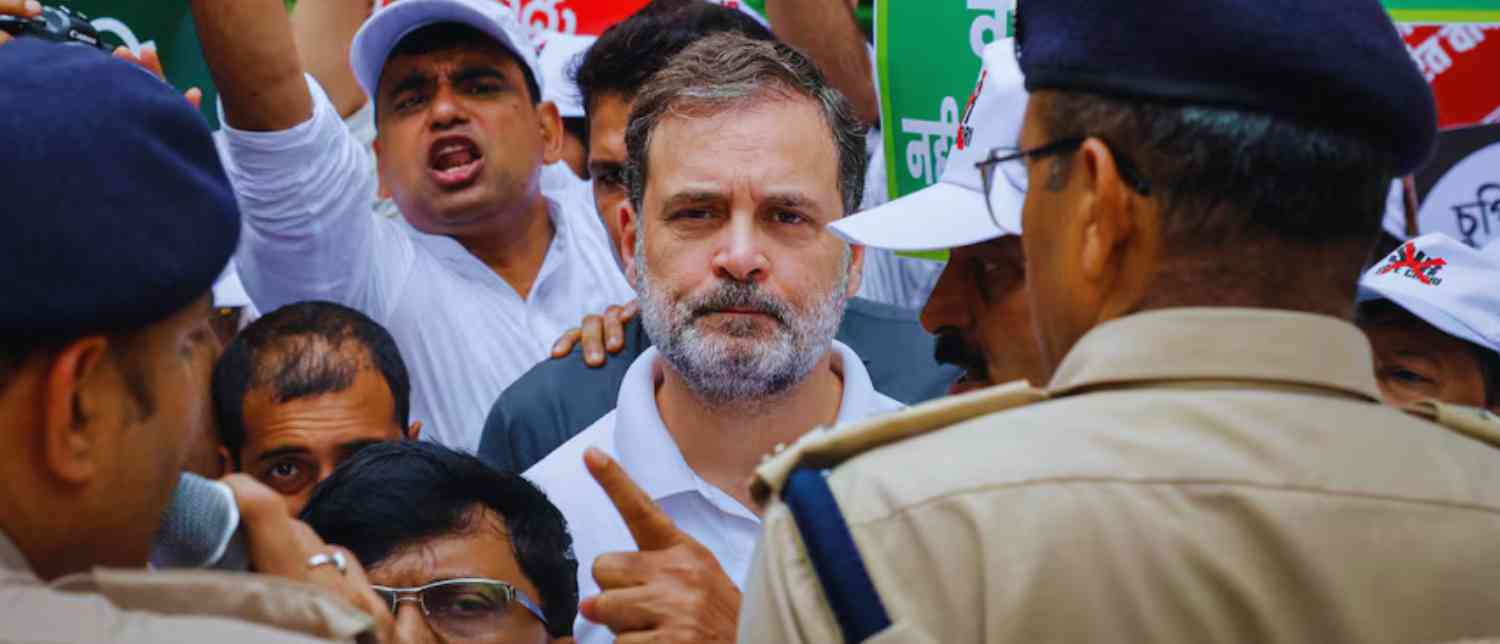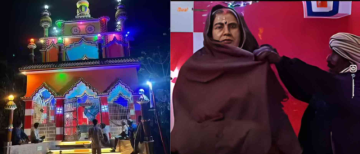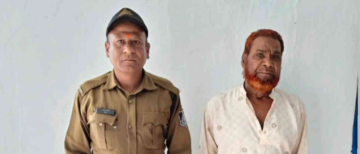The recent detention of Rahul Gandhi and several opposition leaders during a peaceful protest in New Delhi has once again raised sharp questions about the state of democracy in India. What was intended to be a short march from Parliament to the Election Commission of India to raise concerns about alleged irregularities in Bihar’s voter lists ended abruptly when police stopped the group midway and forcibly detained them. The image of Rahul Gandhi inside a police vehicle delivering his remark — “Aap baat nahi kar sakte, aap protest nahi kar sakte, aap sach nahi bol sakte” (“You cannot speak, you cannot protest, you cannot tell the truth”) — struck a deep chord among many citizens who feel that dissent has increasingly become a punishable act.
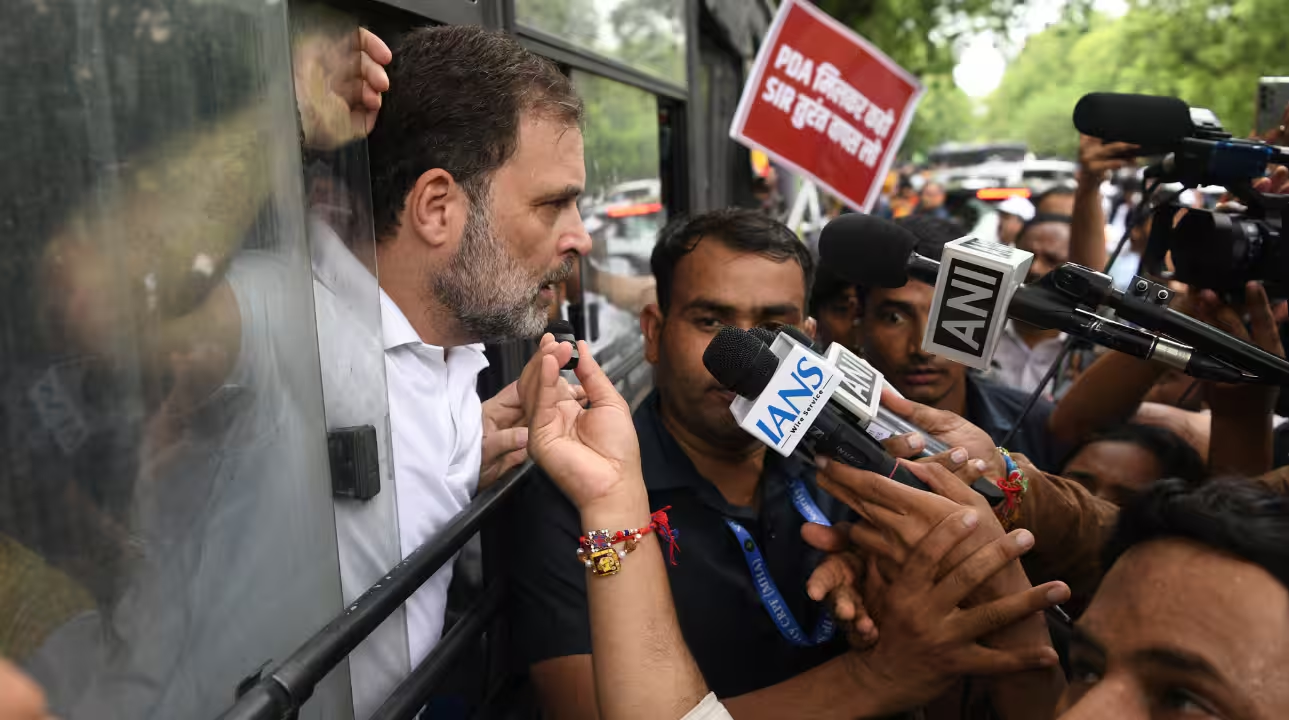
Aap baat nahi kar sakte
This is not an isolated moment. India has seen similar episodes in recent years — from the SSC exam aspirants protesting delays and irregularities in recruitment, to the year-long farmers’ movement against the three now-repealed farm laws, to the widespread anger over the Agneepath military recruitment scheme. In each case, protesters and opposition groups complained of being met not with dialogue but with barricades, force, and mass detentions. A clear pattern seems to be emerging in which the state machinery, instead of engaging with dissenting voices, deploys its power to control or silence them.
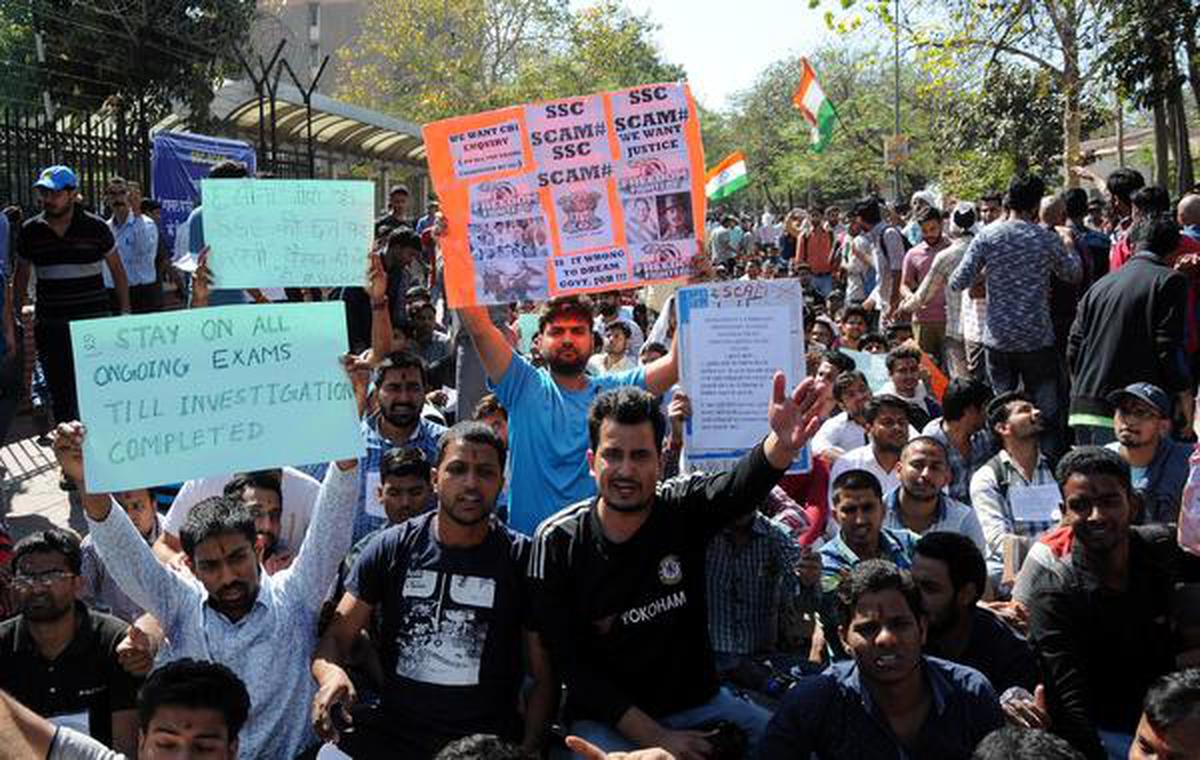
It raises the deeper question — is this the democracy we claim to uphold? Casting a vote every five years is only a small part of the democratic process. A healthy democracy is defined by its tolerance for criticism, its capacity for dialogue, and its willingness to allow citizens to assemble peacefully to express their demands. When protests are broken up, opposition leaders are hauled away before they can submit their grievances, journalists face legal harassment for reporting uncomfortable truths, and civil society activists are jailed for months without trial, it becomes harder to argue that these freedoms are alive and well.
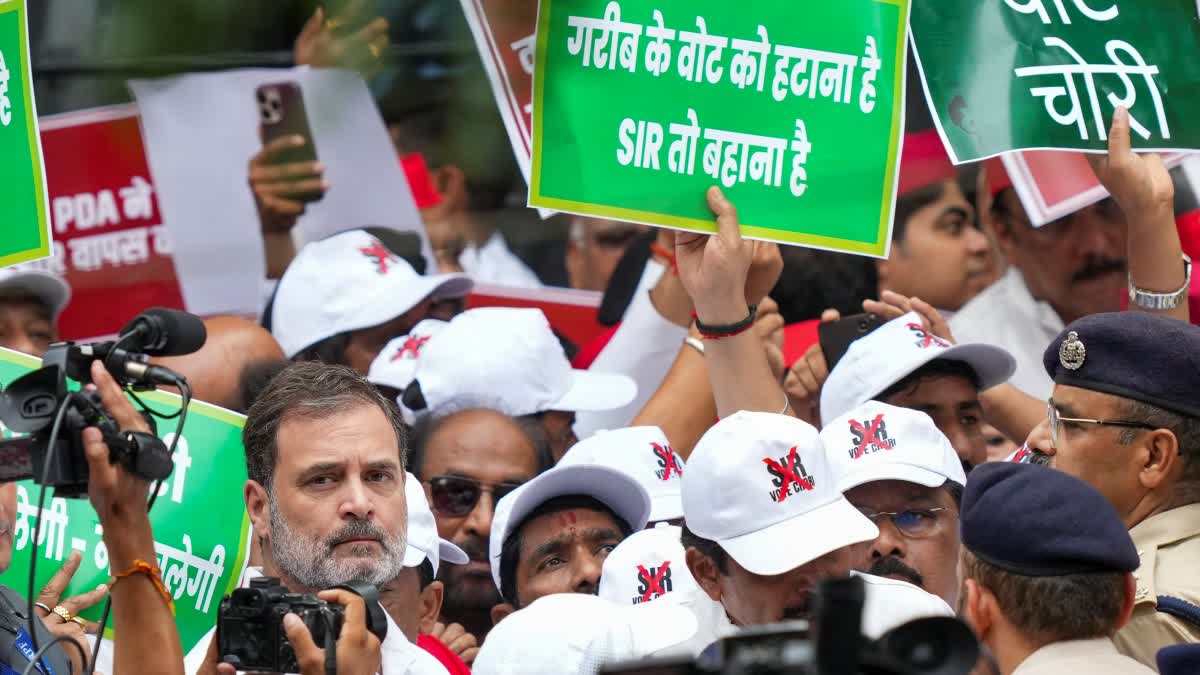
Perhaps the most worrying part is how normalised such episodes have become. A significant portion of the population either ignores them or finds ways to justify them, claiming that protests are disruptive or anti-national. This silent or active complicity allows democratic norms to erode gradually, without the dramatic rupture that might galvanise public outrage. Around the world, history has shown that authoritarianism rarely arrives overnight — it slides in slowly, often with the approval or indifference of the majority.
Internationally too, these incidents have been noticed. India’s standing in various democracy and press freedom indexes has slipped over the past few years, with reports citing constraints on media, civil society, and opposition activity. Each time the world sees images of peaceful protesters being silenced or detained, it chips away at India’s reputation as a nation where democratic values flourish.
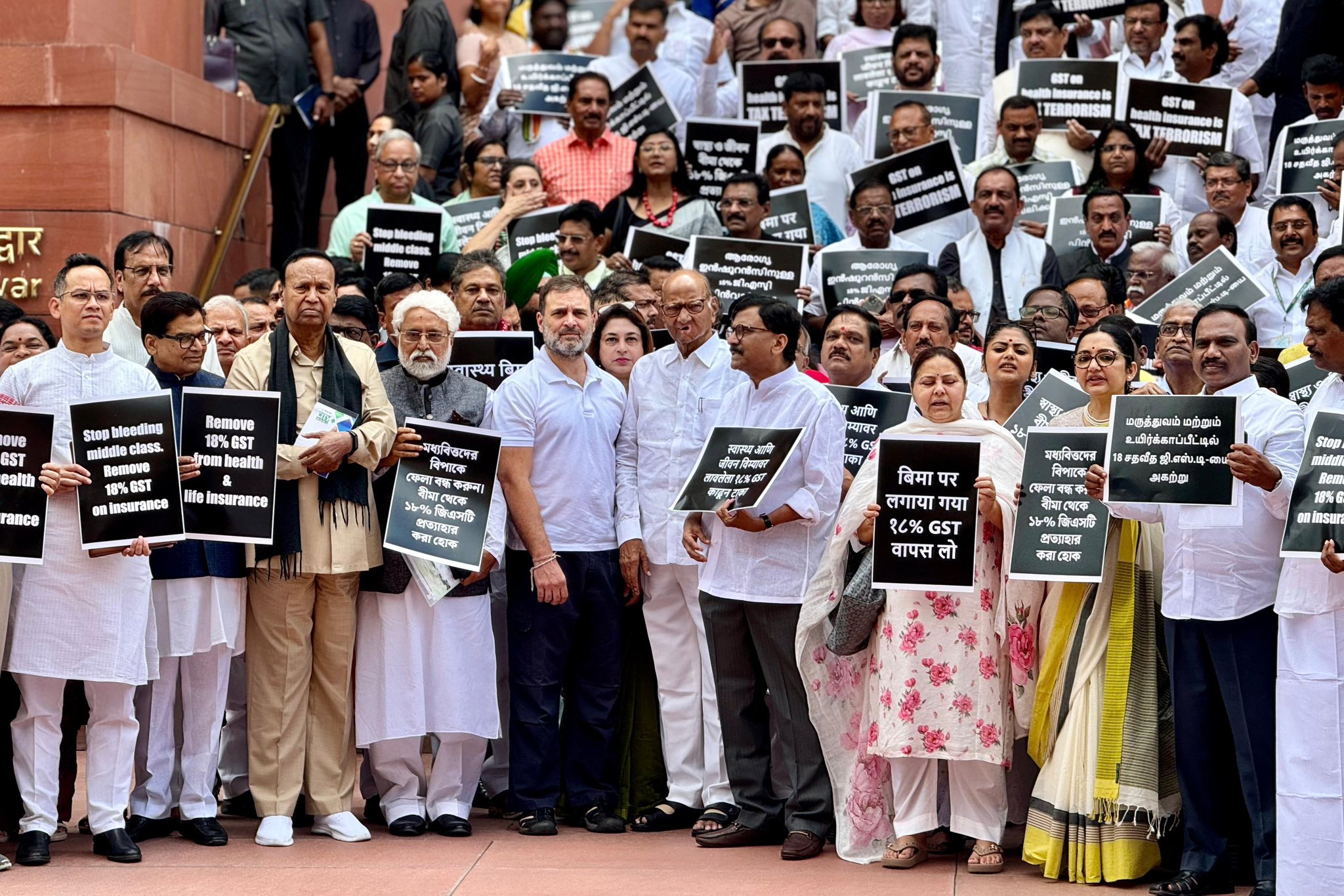
The challenge ahead is whether those in power — regardless of which party is in government — will choose engagement over suppression. Dissent is not a threat to the nation; it is the very sign of its democratic health. Rahul Gandhi’s detention may be a political flashpoint today, but it is also a warning that the space for open debate and peaceful protest is narrowing. The decision before us is not only about policies or leaders, but about what kind of political culture we wish to pass on — one where disagreement is crushed, or one where it is heard and debated.
If India ignores this creeping erosion, it risks waking up one day to find that the structures of democracy remain, but its spirit has quietly slipped away.
With inputs from agencies
Image Source: Multiple agencies
© Copyright 2025. All Rights Reserved. Powered by Vygr Media.

